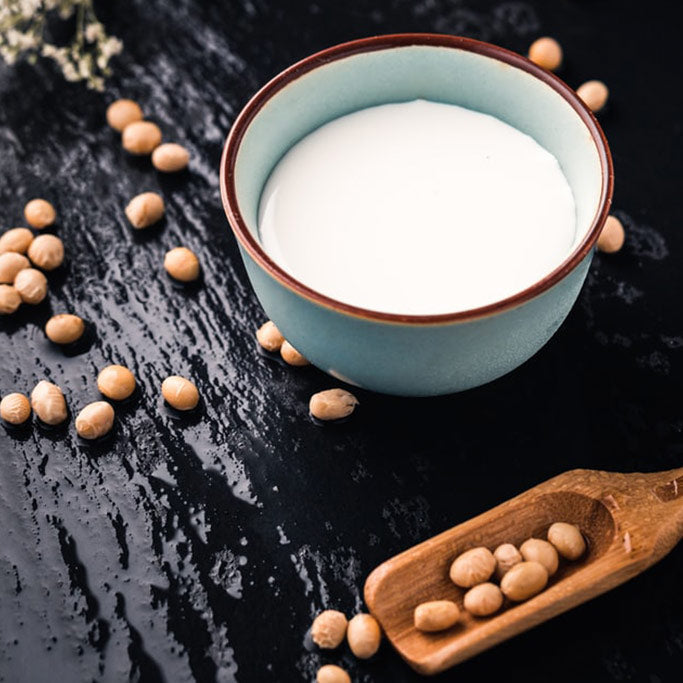
To Soy Or Not To Soy
Share
Soy has been considered extremely controversial in recent years. There are various claims for and against soy foods all over the internet, you may have heard or even convinced by some claims, for example:
- Soy increases the risks of breast cancer;
- Soy interferes thyroid function;
- Soy formula is harmful to infants.
As with most things in nutrition, there are good arguments on both sides. After reviewing some research, we can basically conclude that some components of soy have an effect on health, but they are definitely not as evil as the critics claim.
- Breast cancer

The case against soy revolves around isoflavones. Isoflavones are compounds act as phytoestrogens, which behave like weak forms of the body's own estrogens. The concern is that soy isoflavones would increase a woman’s total estrogen levels and encourage the growth of estrogen-dependent breast cancer. However, this might not be the case. In fact, research studies[i] have found that women who include soy in their diet have a lower risk of breast cancer recurrence. The only studies to show increased cancer risk are on mice with no ovaries or damaged immune systems who eat high amounts of processed soy. There’s no compelling evidence that these studies on animals reflect the effect of soy on humans. Furthermore, statistics shows there are lower rates of breast cancer in many Asian countries, where diets are higher in soy. Another study[ii] showed a 36% reduction of breast cancer recurrence in subjects that consumed ≥10 mg soy isoflavones per day.
- Thyroid function

Yes, soy can affect your thyroid gland. Toxicologists caution that eating large amounts of soy can result in an underactive thyroid and goitre by blocking the production of thyroid hormones. However, this only occurs to those who already have an existing thyroid problem, for example, those who are iodine deficient. It’s possible that people who eat soy foods and who don’t enough iodine could be at risk for goitre. However, iodine deficiency is a rare condition because salt (which we are having for daily meal) is fortified with iodine to prevent deficiency. The available research suggests that normal amounts of soy pose no risk to thyroid function, especially in those who have a normal thyroid.
- Baby’s development

Critics claims soy formula will harm children’s growth and sexual development. But, this is not clinically recognized. A study[iii] published in the Journal of the American Medical Association compared 811 adults between the ages of 20 and 34 who were fed either soy or cow’s milk formula in infancy, and found no significant differences in growth, maturation, fertility or other reproductive outcomes.
If you are still wary of soy products, here’s some things to remember:
- Soy is never as dangerous as critics claim.
- Keep away from genetically modified soy.
- You are not increasing the risk of breast cancer if you consume normal amounts of soy. It has even been shown to protect against breast cancer if you start eating it at a young age.
- The effects on the thyroid are not significant unless you are deficient in iodine.
Bottom line: There’s no conclusive evidence that indicates soy is dangerous to our health.
[i] Messina, M. (2010). A Brief Historical Overview of the Past Two Decades of Soy and Isoflavone Research.
[ii] Nechuta SJ, Caan BJ, Chen WY, et al. Soy food intake after diagnosis of breast cancer and survival: an in-depth analysis of combined evidence from cohort studies of US and Chinese women.
[iii] Strom, B.L., Schinnar, R., Ziegler, E.E. et al. 2001. Exposure to soy-based formula in infancy and endocrinological and reproductive outcomes in young adulthood.

